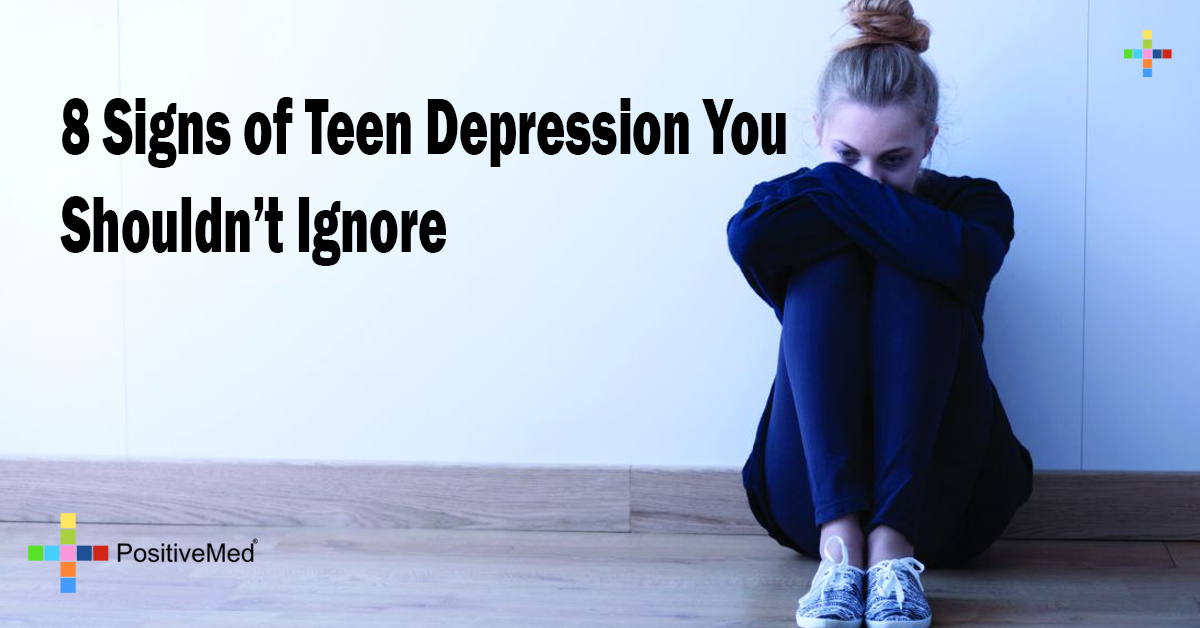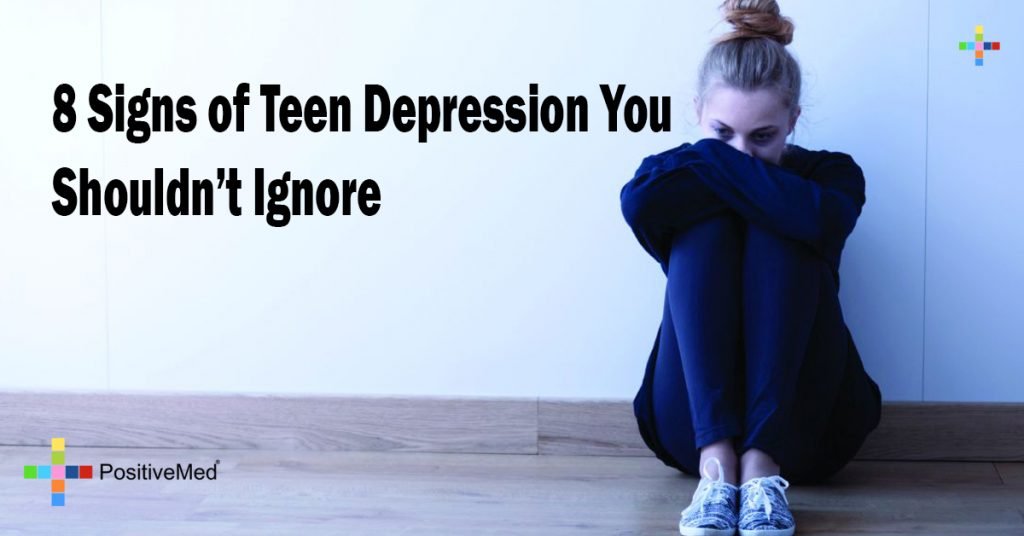[nextpage title=”…”]

8 Signs of Teen Depression You Shouldn’t Ignore
Unfortunately, many of the typical signs of depression are also behaviors of any normal teenager. This may make it difficult to decide if your child is suffering from depression or if they are going through their normal teen years and exhibiting typical behavior. Adolescent depression is rapidly increasing. As many as 20% of teens suffer from clinical depression. Here are eight signs of teen depression and some things you can do to help them fix the problem.
1. Your child has more bad days than good days.
This may not only include feelings of sadness. A teenager may experience depression with feelings of anger, irritability, or agitation above feelings of sadness. If a teenager seems to be experiencing these symptoms on most days for at least two weeks, there may be signs of an issue.
2. There is a loss of interest in normal activity.
Every teenager has a hobby or something they love to participate in that takes up their time outside of school. If a child was once very active in soccer, for example, but then begins to lose interest in the sport or doesn’t find joy in it anymore, they may be suffering from depression. This is called anhedonia and it is essentially the loss of pleasure or inability to feel pleasure.
3. Your child always wants to be alone.
While your child may have once been social and drawn towards other people if a teenager becomes depressed, he or she may withdraw from social activities and opt to spend more time alone.
4. Your teen begins to fail.
[/nextpage][nextpage title=”…”]
Whether it is failing at relationships or failing in school, teens who are suffering from depression often let go of important responsibilities. There may be an increase of arguments while there is a decrease in grades, but either could be a sign of depression.
RELATED ARTICLE: IF YOU HAVE PANIC ATTACKS AND ANXIETY YOU SHOULD LOOK FOR THIS CAUSE
5. Your teen changes his or her eating or sleeping habits.
Eating habits may increase or decrease. While some turn to food for comfort during the depression, others do not have the energy or care to make their own food. Some also lose their appetite completely. Whether a teen is over or under eating, he or she may be using food as a coping mechanism for their feelings.
Issues with food can spiral out of control, as teenagers feel trapped in their eating habits, whether that is with too much or too little food. This is a slippery slope and can result in further health problems.
When it comes to sleep, many teenagers spend a lot of their time catching up on much-needed rest. However, those who suffer from depression often want to suppress their feelings by sleeping through them. This gives temporary relief from any emotional turmoil.
However, the opposite may be true as well. Insomnia is common among teenagers who are suffering from depression. Insomnia may be the base of the depression, as studies have shown that people who suffer from insomnia are ten times more likely to suffer from depression than those who sleep well. Teenagers with depression can have a wide range of symptoms from insomnia, including trouble falling asleep, trouble staying asleep, poor sleep, and constant sleepiness during the day.
[/nextpage][nextpage title=”…”]
6. Your teen has low self-esteem.
This is very common with teenagers, but if there is self-hatred involved, it is more likely linked to depression. If somebody is feeling worthless and not just self-conscious, this is a more serious issue.
7. Your child is misbehaving.
There is a difference between the typical teenage rebellion and high-risk behavior. Drinking, drugs, and other risky behavior that is done without the consideration of consequences may be a sign of depression. This is especially true if it has a sudden onset and your teen is going to extremes.
8. Your teen voices self-harm.
During depression teenagers are talking to themselves or they hear voices, or they talk to imaginary people. This one should always be taken seriously and as a sure sign of depression.
If your teen is showing some of these signs, there are things you can do as a parent to help resolve the situation. Be a good listener when your teen is discussing problems they may be having and be sure to talk to your teen about their feelings.
Don’t try to fix all of their problems, but instead, guide them to working through their problems themselves. If you feel like you are making no progress, suggest a professional therapist help the child has another outlet.
It is important to know what to expect when having a teenager. While some behaviors are perfectly normal, some become too extreme and can show that your child is suffering. Engage with your child often to be able to look out for these signs.
[/nextpage]






